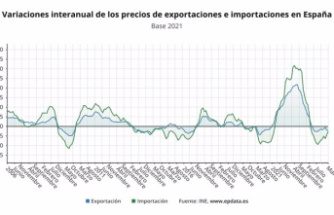You remember the visit of the young Swedish environmental activist Greta Thunberg.
Many, who agreed with the need to change our way of living and consuming, were annoyed by these "impatients" who were a little too alarmist in their eyes. Yet, from summit meeting to summit meeting, it seems that nothing changes and that we are always placed on red alert.
At the Montreal Conference on Climate Change, organized by the UN in November 2005, stakeholders committed to concrete and rapid action. However, 17 years later, the situation is maddening: greenhouse gas (GHG) emissions continue to increase, the planet continues to warm up and the impacts of global warming are multiplying and worsening, notes the he author of this new warning cry, Hugo Séguin, an early activist.
Clearly, goodwill, promises and "small victories" are not enough to change the course of events.
"We're not 'in control' at all," warns Séguin. The climate is getting carried away all the same, and the soft and incremental policies deployed so far are not enough. The strategy of small steps does not produce the results that should be achieved. »
The author does not deny that the pragmatic approach, that of the political class and a good part of the environmental community, has borne fruit, but it is not enough, he claims. And the news proves him right every day. What is more, this accumulation of bad news – devastating fires, deadly heat waves, disappearance of species, etc. – also affects our mental health – we now speak of eco-anxiety.
Towards radical action
Faced with such an acknowledgment of failure, is it not necessary to resort to a certain form of radicalism? are we entitled to ask. We cannot save the world by playing by the rules, we hear more and more among the younger generations. Because the big protests of the past few years have not led to any real change. At most, they have been vectors of hope in the face of a reality that seems immutable.
But what would a profoundly transformed, environmentally friendly and carbon-neutral society look like? Save the planet, yes, but without reducing the growth and economic enrichment of populations. Utopia or feasible project? This issue is so complex that many activists tend to move away from politics, where decisions are made, to work at the local level, "among friends and accomplices", where it is easier to change things. One more illusion, believes the author, for whom "the adoption of radical ideas and measures now seems unavoidable, given the deterioration of the environmental situation and the growth of inequalities".
However, deplores the environmental activist and teacher, we are rather conservative and innovative and radical ideas are scary. However, the history of the world teaches us that great social advances have often been the product of radical actions. However, he recognizes that certain ideas, considered too radical yesterday, have ended up gaining ground and prevailing. This is how Quebec announced, in the fall of 2021, "the end of all oil and gas exploration and exploitation activities on its territory".
Another such sweeping action, according to the author, would be "the nationalization of the oil and gas sector in Canada to force the rapid reduction of production and associated emissions." An idea that will eventually prevail, he hopes.
This book does not claim to provide solutions to all environmental problems, but is intended as a contribution to the necessary and urgent reflection. An invitation to dialogue between the different activist organizations. A call to the youngest to occupy all the space, because often bad decisions are made when they are conspicuous by their absence. Mission accomplished.













